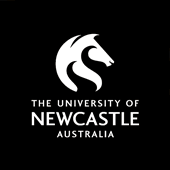Gisborne, Henry Fyshe (1813 - 1841)
Born: England
Wellington Police Magistrate (1838-39). Gisborne was the first of two Police Magistrates at Wellington, holding the position briefly before taking an appointment as Crown Land Commissioner for Port Phillip
Career Highlights
Henry Fyshe Gisborne arrived in Sydney in 1834 after leaving Trinity College, Cambridge. He acted as Governor Bourke’s private secretary till 1837, then took the appointment of first Wellington Police Magistrate in 1838. He proved himself an able ally to the Wellington Valley settlers by orchestrating their agenda to have a local township laid out. In a letter to government in July 1838 on the subject of a local township, Gisborne included a confidential memo which spoke contemptuously of the Aboriginal population’s “utter ignorance of the essence of religion” after seven years contact with the missionaries. At the 1839 Executive Council enquiry into the state of the Wellington Valley mission, Gisbourne gave a damming account of the local Aborigines, reporting that "there is not one of them who, in my opinion, understands the least of religion".
Gisborne was the magistrate described by Alexander Harris in his 1847 Settlers and Convicts, who was said to have ordered a cruel flogging within sight of the mission house, causing Mrs. Watson to faint. Following a number of complaints from the missionaries, he was exhorted to be more courteous and sensible of the needs of the mission, and floggings were thereafter conducted inside the former victualling stores. Gisborne's own views on corporal punishment were given in a Legislative Council Select Committee on Police and Gaols in 1839, when he professed opposition to corporal punishment on the grounds that it was mostly ineffectual on emancipists. He preferred solitary confinement, he explained, because “fourteen days is more than twice as great a punishment as seven, but fifty lashes is scarcely a greater punishment than twenty-five”.
Gisborne was appointed as Crown Land Commissioner for the Port Phillip district, and in 1840 drafted the petition for the seperation of Port Phillip from NSW. He resigned his post as Commissioner in order to return to England for his health, but died en route in April 1841. Gisborne Street, Wellington, was named in his honour, as was a street in Melbourne and a Victorian country town.
Biographies
ADB s.v. "Gisborne, Henry Fyshe", by M. Bassett, 1:453-4.

